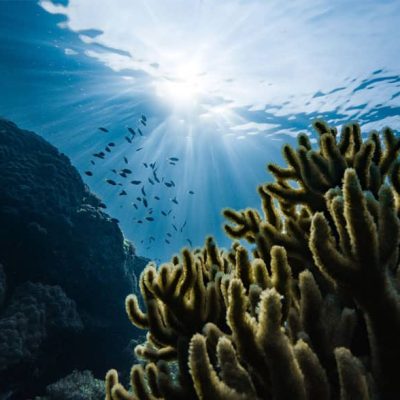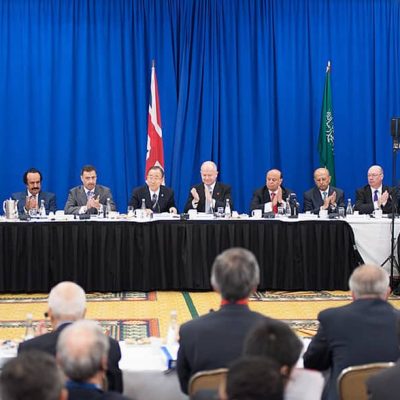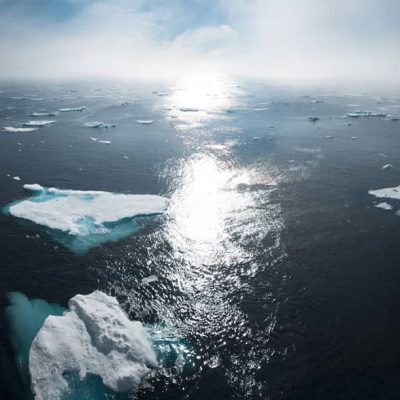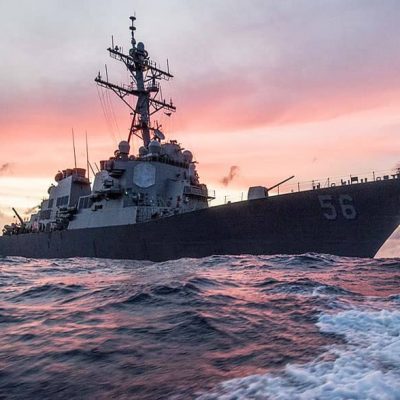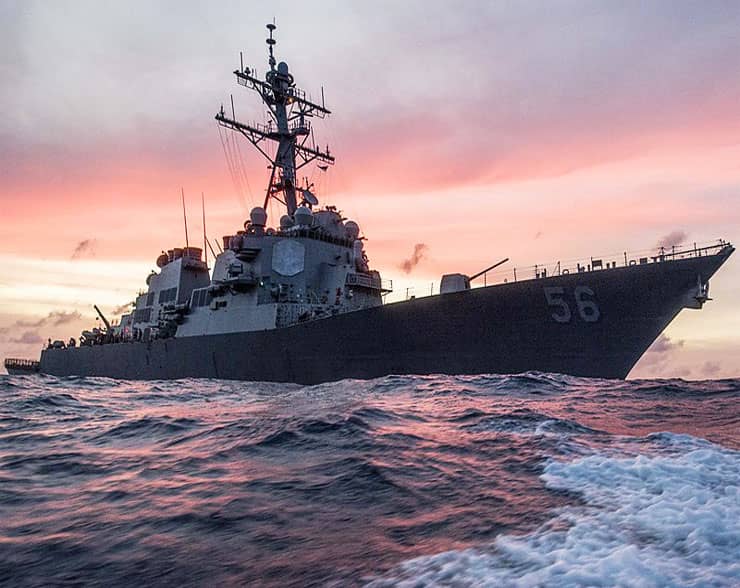 Appeals
Appeals
Saber Rattling in the South China Sea.
Featured Image: The USS John S. McCain conducts a routine patrol in the South China Sea, Jan. 22, 2017. The guided-missile destroyer is supporting security and stability in the Indo-Asia-Pacific region. Navy photo by Navy Petty Officer 3rd Class James Vazquez. By Navy Petty Officer 3rd Class James Vazquez, Public domain, via Wikimedia Commons.
Six days of Chinese naval maneuvers have begun on 6 August 2021 near southeast Hainan province in the South China Sea at the same time as war ships of the U.S.A, the United Kingdom, Australian Defence Forces ships and those of the Japan Self-Defense Forces are also training in the area. The South China Sea is fast becoming a theatre of brinkmanship.
“We view with concern China’s unlawful claim to the entire South China Sea – directly and negatively impacting all the countries in the region from their livelihood, wheither it be with fishing or access to natural resources.” said John Aquilino, commander ot the US Indo-Pacific Command at the Aspen Security Forum on 4 August. The U.S. Commander added that he was concerned by China’s suppression in Hong Kong, human rights issues in Xinjiang, as well as China’s military actions on the border with India. “These are the tings that lead me to believe that our execution of integrated deterrence has to occur now with a sense of urgency.”

Admiral John C. Aquilino, USN Commander, U.S. Indo-Pacific Command. (April 2021). By United States Department of Defense, Public domain, via Wikimedia Commons.
The Chinese Foreign Minister Wang Yi quickly replied that “foreign powers” must stop extending “black hands” in the South China Sea and show “four respects – respect for historic truth, inernational law, the countries of the region and their agreements.
China’s Global Times published a harsh editorial on the same lines warning to:
“follow the current international shipping lanes and stay at least 12 nautical miles away from the Chinese islands and reefs…Stopping such intrusive behavior that violates China’s territorial waters is a struggle China is destined to intensify… Under international law, warships, including those of the US and its allies have been able to pass through the South China Sea unimpeded. But if those shipes want to exert geopolitical pressure and build a wall to contain China along those shipping lines, those warships will face a confrontation from China. And the intensity of the confrontation is bound to increase constantly.”

On November 25, 2019, Foreign Minister of the People’s Republic of China Wang Yi. By 首相官邸ホームページ, CC BY 4.0 <https://creativecommons.org/licenses/by/4.0>, via Wikimedia Commons.
It is probable that the Cold War-like rhetoric in Washington has encouraged China’s siege mentality. While it is unlikely that there will be a deliberate use of violence by any party, there can be miscalculations and misinterpretations of actions. In addition to China, Vietnam, the Philippines, Indonesia, Malaysia, Taiwan, and Brunei all make claims to some of the islands in the South China Sea. Slowly but surely, Beijing has been expanding its strategic influence in the South China Sea. The South China Sea islands and surrounding waters are crucial as potential military platforms, plausible points of strategic surveillance as well as sites of energy reserve.
It is in the interest of the world society that the tensions concerning the delimitations in the South China Sea be reduced. The current tensions could slip out of control.
Rene Wadlow, President, Association of World Citizens.

Presidente, Asociación de World Citizens (AWC).
Cursó Estudios de Relaciones Internacionales en La Universidad de Chicago.
Cursó Estudios en el Programa Especial de Civilización Europea en
La Universidad de Princeton
Here are other publications that may be of interest to you.
Prevenir la expansión del conflicto de Gaza: ¿Son posibles las brigadas de paz?
Antony Blinken, el secretario de Estado de Estados Unidos, ha estado nuevamente en Medio Oriente trabajando para evitar que la violencia de la Franja de Gaza se extienda a gran…
Ciudadanos del Mundo Piden un fin Inmediato a las hostilidades entre Israel y Hamás, y por un esfuerzo auténtico de construcción de Paz en Oriente Medio.
Imagen destacada: El impacto del bombardeo israelí sobre un edificio civil en Gaza (2021). Por Osama Eid, CC BY-SA 3.0 https://creativecommons.org/licenses/by-sa/3.0, via Wikimedia Commons. La Asociación de Ciudadanos del Mundo,…
Transformación del Populismo en Europa y las Américas: Historia y Tendencias Recientes.
Imagen de portada: Caricatura de juez de 1896 que muestra a William Jennings Bryan/Populismo como una serpiente que se traga a la mula que representa al Partido Demócrata. Por la…
Día Internacional de los Océanos.
Imagen destacada: Foto de Marek Okon, Unsplash. Es necesario avanzar en las delimitaciones marítimas asiáticas. . El 8 de junio ha sido designado por la Asamblea General de las Naciones Unidas como…
Siria: El Comienzo de una noche de dolor.
Featured Image: Photo by Ahmed akacha: https://www.pexels.com/es-es/foto/gente-demostracion-rally-protesta-7183546/ Por Rene Wadlow. El 13 de marzo de 2011 en Derra, en el sur de Siria, 15 adolescentes fueron arrestados por la policía…
Yemen: Aún se necesita Acción Positiva.
Imagen destacada: El Reino Unido acogió la reunión de Amigos de Yemen el 27 de septiembre de 2012 en Nueva York junto con los coanfitriones del Reino de Arabia Saudita…
Medidas para crear Confianza en Asia-Pacífico: Revertir la Deslizamiento hacia la Violencia.
Imagen destacada: Foto de wu yi, Unsplash Con los militares estadounidenses y chinos comprometidos cerca de Taiwan, un error de cálculo podría conducir a la violencia armada. El conflicto armado en…
Enfoque de la ONU sobre las consecuencias del Cambio Climático.
Imagen destacada: Foto por William Bossen, Unsplash El 20 de marzo de 2023, el Panel Intergubernamental sobre el Cambio Climático (IPCC) publicó un Informe de síntesis basado en sus tres informes…
Medidas efectivas para proteger nuestros océanos
Imagen destacada: Foto por Dave Hoefler, Unsplash. El 4 de marzo de 2023, en las Naciones Unidas en Nueva York, se dio un paso importante hacia la protección de los océanos…
Ruido de Sables en el Mar de China Meridional.
Imagen destacada: El USS John S. McCain realiza una patrulla de rutina en el Mar de China Meridional, el 22 de enero de 2017. El destructor de misiles guiados apoya…



